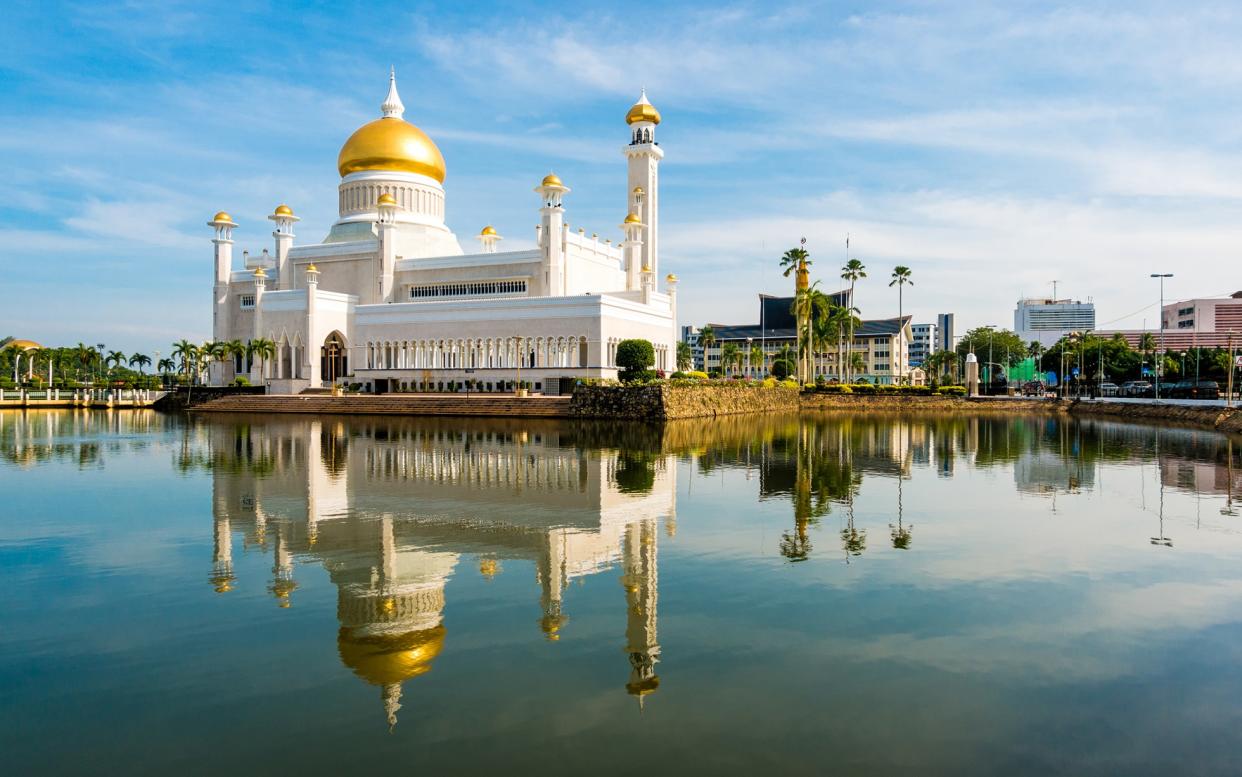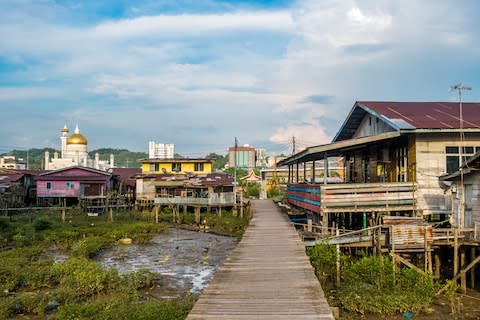‘The antidote to modern-day stress’ – Brunei tries to entice tourists amid outrage at barbaric new laws

“The abode of peace beckons”. So says the promotional literature. But Brunei’s latest tourism tagline jars somewhat with the reality on the ground: yesterday the country introduced death by stoning for people found guilty of homosexuality and adultery.
Brunei’s new penal code, which punishes thieves by amputating their limbs, has been widely condemned by human rights groups, and Hollywood stars such as George Clooney, who has called for a boycott of hotels owned by the Sultan of Brunei; a property portfolio that includes London’s Dorchester.
“Brunei’s new penal code is barbaric to the core, imposing archaic punishments for acts that shouldn’t even be crimes,” said Phil Robertson, Human Rights Watch’s deputy Asia director. “Sultan Hassanal should immediately suspend amputations, stoning, and all other rights-abusing provisions and punishments.”
Under the United Nations Convention against Torture (UNCAT), “cruel, inhumane or degrading treatment or punishments” are forbidden. Brunei has signed, but not ratified, the convention and is not alone in enforcing a strict interpretation of Sharia law. Corporal punishment is also carried out in the Maldives, Saudi Arabia and the United Arab Emirates (UAE), among other places.

As per the aforementioned destinations, Brunei finds itself in the position of implementing a draconian penal code while trying to court international tourists. With an economy heavily reliant on oil – a commodity incompatible with global commitments to reduce CO2 emissions – Brunei is maneuvering to plug the anticipated gap in crude revenue by tapping into its underexploited potential as a holiday destination.
Currently, only around a quarter of a million tourists visit the country annually – Singapore, by contrast, which sits just across the South China Sea, receives more than that in a week. But the sultanate has ambitions to change that and by 2021 it aims to welcome half a million visitors annually.
To help entice more tourists, the state-owned carrier, Royal Brunei Airlines, recruited M&C Saatchi to devise a clever digital marketing campaign.
“Royal Brunei Airlines intends to grow revenues by increasing overall tourism inflow into Brunei,” explains M&C Saatchi on its website. “The objective is to get more people to plan a Brunei holiday, and choose to fly Royal Brunei Airlines while doing so. Our idea is to position Brunei as the antidote to the modern-day stress of city life in Asia and the world.”
However, even with one of the world’s best marketing agencies behind it, Brunei will now likely face an uphill battle enticing liberally-minded tourists.
“No amount of PR spin can hide the cruelty of Brunei’s new penal code provisions,” said a spokesperson for Amnesty International. “Imposing horrific penalties for acts that shouldn’t even be considered criminal, like same-sex sexual activity, is wrong on every level. The government should immediately withdraw the order enacting Syariah Penal Code Order 2013.”
While the campaign to boycott the Sultan of Brunei’s hotel group presumably extends to the destination itself, it raises questions about the effectiveness of a boycott, which will likely hurt ordinary people harder than the Sultan, whose personal fortune is estimated to be $20 billion (£15.2bn).

“Whilst the Brunei government’s decision to implement barbaric such practices is appalling, that does not mean that a tourism boycott is necessarily the correct response,” said Justin Francis, CEO of Responsible Travel.
“It’s important to remember that the government’s response does not always accurately reflect the feelings of the people. And rather than impacting the government, jobs and livelihoods that depend on tourism would be lost, and it's the citizens who would suffer.”
Boycotts also raise questions about where tourists should draw moral lines. The Maldives, where stoning is also a punishment? The UAE, where adulterers are given 100 lashes? Morocco, where homosexuality is punishable by prison?
“If we boycotted every country that didn’t have a clean record when it comes to human rights or animal welfare, for example, we would be left with a very small handful of places which we would feel comfortable visiting,” said Francis.
“A country is far more complex than just one issue. We believe tourists have the power to travel responsibly, even in destinations with poor rights records.”

